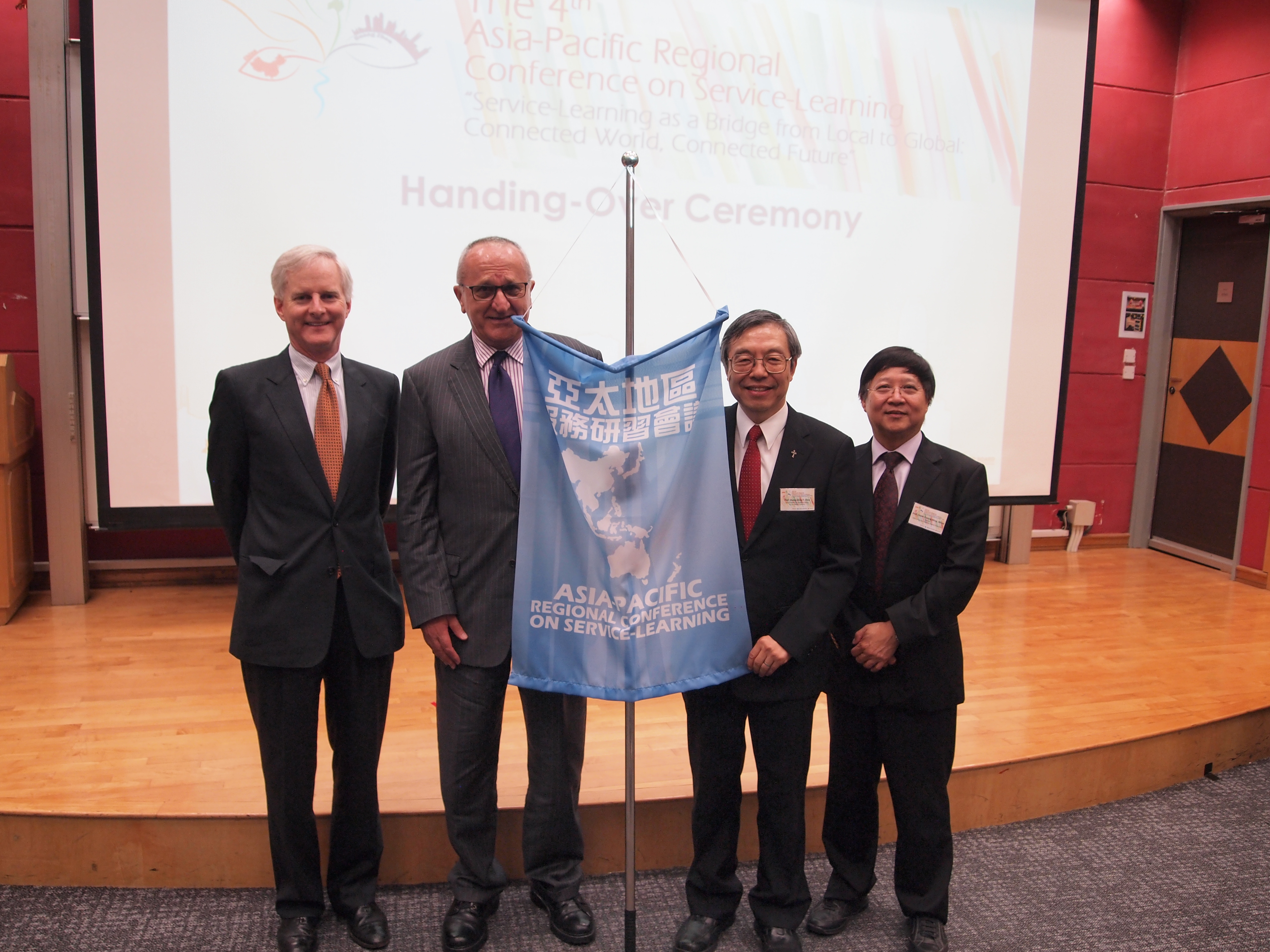Location
MD204, Paul Cardinal Shen Medical Building, Fu Jen University
Start Date
29-5-2015 3:00 PM
End Date
29-5-2015 4:10 PM
Description
Whether a small-scale intensive Service-Learning project makes an impact or not? This is a question we have been asking ourselves over the past ten years. In 2005, this S-L project was initiated to respond to a call from an elementary school located in central Taiwan. Since then, students and faculty of the English Department have been collaborating closely with teachers in the local community. The driving force behind this ten-year long journey is our urge to bridge this English Divide, a socially-rooted issue in education and also the ugly reality we hate to confront. In this AR research study, we intend to examine the developmental process of partnership building among student participants, faculty, institutions and communities in the five S-L stages through the lens of Service-Learning Program Planning Model (SLPPM).
Researchers argue that program planning would impact on the quality of S-L practices, and call for improving research as a tool to involve community voices and to enhance reciprocity. Well-integrated program design that includes academic studies/professional knowledge, structured reflections, and continuous dialogue with the community, is essential to maximize and sustain learning and to improve the pedagogy. To analyze the complex negotiation and communication throughout the whole process, qualitative data including reflections, interviews, and observation logs are collected. Through interactions with community partners during service and through further data analysis after service, a deeper understanding of various contextual factors and the local community's needs is gained and reciprocity facilitated.
Aspects addressed in our study include:
/="/"> 1. Which contextual factors underlying the English Divide are crucial in this S-L project?
/="/"> 2. What transformation process do participating students undergo during the process of partnership building?
/="/"> 3. Which possible roles do the participants carry and which meaning perspective do they construct in the research process?
This action research provides a more systematic analysis of our ten-year S-L experiences. It demonstrates how students' active participation in the research process helps to develop a deeper understanding of the community needs and to contribute to a sustainable partnership.
Recommended Citation
Wei, S. Y.-C., Hsu, B. H.-C., Huang, C. Y. T., Gong, A. Y.-T., & Yeh, A. T.-a. (2015, May). In response to the English divide: Our ten-year service-learning journey. Paper presented at the 5th Asia-Pacific Regional Conference on Service-Learning: Love Journey: Community Engagement through Service-Learning, Fu Jen Catholic University, Taiwan.
Included in
In response to the English divide : our ten-year service-learning journey
MD204, Paul Cardinal Shen Medical Building, Fu Jen University
Whether a small-scale intensive Service-Learning project makes an impact or not? This is a question we have been asking ourselves over the past ten years. In 2005, this S-L project was initiated to respond to a call from an elementary school located in central Taiwan. Since then, students and faculty of the English Department have been collaborating closely with teachers in the local community. The driving force behind this ten-year long journey is our urge to bridge this English Divide, a socially-rooted issue in education and also the ugly reality we hate to confront. In this AR research study, we intend to examine the developmental process of partnership building among student participants, faculty, institutions and communities in the five S-L stages through the lens of Service-Learning Program Planning Model (SLPPM).
Researchers argue that program planning would impact on the quality of S-L practices, and call for improving research as a tool to involve community voices and to enhance reciprocity. Well-integrated program design that includes academic studies/professional knowledge, structured reflections, and continuous dialogue with the community, is essential to maximize and sustain learning and to improve the pedagogy. To analyze the complex negotiation and communication throughout the whole process, qualitative data including reflections, interviews, and observation logs are collected. Through interactions with community partners during service and through further data analysis after service, a deeper understanding of various contextual factors and the local community's needs is gained and reciprocity facilitated.
Aspects addressed in our study include:
/="/"> 1. Which contextual factors underlying the English Divide are crucial in this S-L project?
/="/"> 2. What transformation process do participating students undergo during the process of partnership building?
/="/"> 3. Which possible roles do the participants carry and which meaning perspective do they construct in the research process?
This action research provides a more systematic analysis of our ten-year S-L experiences. It demonstrates how students' active participation in the research process helps to develop a deeper understanding of the community needs and to contribute to a sustainable partnership.
